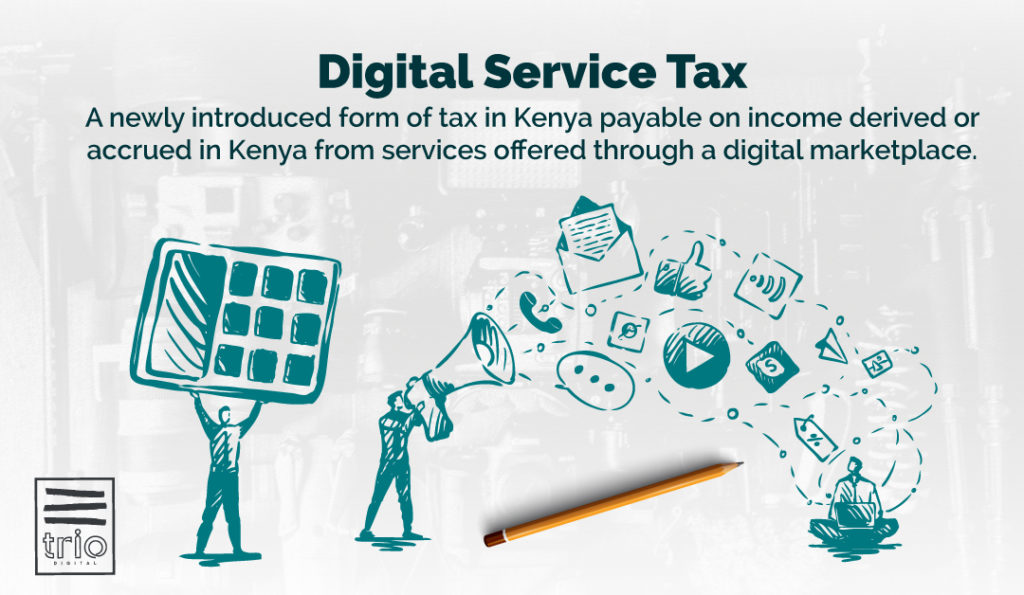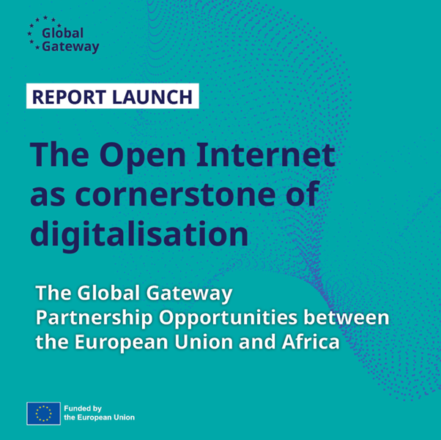After many years of negotiations, the reform of the global taxation of multinationals, targeting notably the digital giants, has finally been launched. Where do we stand today in terms of the actual implementation of this measure?
Asma CHARKI: I believe that the agreement that has just been finalized by the international community, on October 8, is completing the international tax reform initiated several years ago in the context of the work of the OECD/G20 Inclusive Framework on Tax Base Erosion and Profit Shifting (the working group where advanced and developing countries discuss tax issues, and which includes 139 member countries, many of which are from Africa). As part of this agreement, 136 member countries of the inclusive framework signed up to the declaration based on a two-pillar solution to the tax challenges raised by the digitization of the economy, with the exception of Kenya, Nigeria, Pakistan and Sri Lanka.

The first pillar (pillar 1) of the adopted declaration stipulates that multinationals with a consolidated turnover of more than 20 billion euros and a profitability (corresponding to the ratio of profit before tax to turnover) of more than 10% will have to pay a tax on profits - in addition to VAT - in the national jurisdictions where they sell their products or services, which are essentially digital. Moreover, in order to be eligible for this right to tax, these jurisdictions would have to receive at least 1 million euros of revenue per multinational, which de facto excludes developing economies from this new model of tax revenue allocation. It is true that the declaration of the inclusive framework of 8 October provides an exception for small jurisdictions with a GDP of less than 40 billion euros, by granting them a right to tax from a threshold triggering the nexus of 250,000 euros, but it must be noted that even this criterion is not sufficiently inclusive, particularly with regard to African economies.
“Pillar 1 includes, in addition to digital companies (the GAFAs in particular), all multinational companies that use digital distribution and marketing channels”
However, the critical analysis is not limited to these tailor-made formulas for redistributing tax revenues and, in my opinion, raises other, deeper questions: first, in terms of scope, Pillar 1 has been conceived in a rather broad manner and includes, in addition to digital companies (the GAFAs in particular), all multinational companies, including pharmaceutical companies, traditional industries and services, as long as they use digital distribution and marketing channels. Secondly, and despite the broadening of the scope, it is estimated that the number of multinational companies that will finally be eligible for this first pillar is 78 out of the 500 largest companies with taxing rights on an annual basis of 125 billion dollars of profits, which will be reallocated to national jurisdictions. Therefore, while the quota that is allocated to African economies under the new Pillar 1 rules seems minimal at first glance because of the combination of the various elements I have explained, it will take seven years before the scope of this rule is extended to include more multinational enterprises.
The second pillar (pillar 2) agreed in the framework of the above-mentioned inclusive agreement is devoted to the fight against tax competition, described as a "race to the bottom". It provides for the introduction of a global minimum corporate tax, the rate of which has been set at 15% and which will be applicable to companies with a turnover of at least 750 million euros, i.e., a scope of eligible companies that is much greater than that of pillar 1, which should generate additional tax revenues estimated at 150 billion dollars on a global scale. Once again, if this reform aims to allocate to the countries where the headquarters of multinational companies are located an additional right to tax low-taxed income in jurisdictions offering very low tax rates, its implementation in Africa is questionable since the average tax rate in Africa is 26.8% in 2021, according to OECD data. And even if subsidiaries of multinational companies were to operate there, there would be no tax revenue allocated to the countries of the parent companies under this pillar, since the minimum of 15% is already exceeded.
“Have we grasped the new paradigm of value creation in the digital age? Or is it simply a global agreement to reallocate tax revenues among the world's major economies?”
Finally, I think that beyond the figures and the mechanisms and difficulties of implementation, the fundamental question yet to be addressed is whether, through this global and historic solution, we have been able or not to deal with the impacts of digitization and the digital transformation of our economies on tax systems in a definitive manner. Have we grasped, from a tax perspective, the new paradigm of value creation in the digital age? Or is it simply a global agreement to reallocate tax revenues among the world's major economies? And what about African countries, which have already introduced several unilateral measures to tax digital operators on a national basis while awaiting the outcome of this tax reform? On the continent, Nigeria has introduced the notion of significant economic presence for the qualification of the intervention of digital operators as a permanent establishment, while Kenya has introduced from January 1st of this year, a tax on digital services of 1.5%, calculated on the gross value of transactions.
What could be the concrete impact of this digital tax?
Odondi NICKSON: Compared to other parts of the world, where some jurisdictions apply similar taxes of up to 10 or 12% of the gross transaction value, our 1.5% rate is very modest. So on that basis, you can't expect a lot of revenue generation because the digital economy is a relatively new segment. We also want to make sure that we encourage our citizens to use digital services, while at the same time making sure that these digital services are used as models for new innovations.

As far as the digital services tax is concerned, we have managed to collect a little more than half a billion Kenyan shillings (about $5 million); a sum that was collected largely through domestic companies, with the 40 or so registered non-resident operators contributing about 10 percent of that amount until July. I think this is a very good start, given that the DST (Digital Service Tax) started in January 2021.
"It's a tax you pay and you don't see the direct benefit"
In general, when discussing the potential impact of a tax, it is good to remember what the 18th century economist Adam Smith said: "It is a tax that you pay and do not see the direct benefit of”. We leave that to our policy makers, who will decide how to use the funds collected, even though, as far as digital technology is concerned, we know that the Kenyan government is seeking to strengthen what is called last mile connectivity, to deploy fiber optics in the most remote areas. The revenue from the DST simply goes into the country's overall revenue baskets and is therefore not earmarked (at this time) for any specific project or sector. The financial situation born of the COVID-19 pandemic also means that most governments are under pressure to fund the budget, so there will likely be trade-offs.
What potential difficulties could hinder the implementation of the digital tax?
Asma CHARKI : Today, I think that by joining the OECD/G20 inclusive framework on tax base erosion and profit shifting, member countries de facto commit themselves to abolish all unilateral measures, such as digital services taxes (DST) and other similar measures or taxation.
Kenya and Nigeria have not yet joined this solution - according to the October 8 statement - because of the introduction of unilateral measures, but I believe that other African countries that have adopted or are in the process of adopting unilateral tax measures will move towards this comprehensive solution, which still has the advantage of encompassing the non-double taxation mechanisms that are lacking in unilateral tax measures and dispute settlement procedures that are obligatory for signatory countries.
Couldn't this taxation policy on the digital economy have a perverse effect: slowing down the sector’s attractiveness in terms of investment and/or weighing on consumers' purchasing power?
Odondi NICKSON: I don't think we can talk about opposite effects yet, because the digital service tax (DST) was introduced recently. We don't have enough data points. Fundamentally, this tax is an income tax because it is essentially a tax on profits, made possible by the efforts of the government, which provided the companies concerned with an environment conducive to their business. If that environment was not conducive and the tax framework was not fair and inclusive, those companies would not earn as much in their jurisdiction. It is therefore a tax on profits and we understand that, from an economic point of view, a tax on profits should not lead to an increase in the price of a product, as it is the final result(profit) that is taxed.

It is nevertheless possible to think that, in the long run, we will see an increase in the price of certain digital services, especially those originating from companies not registered in Kenya, in order to correct some of the current flaws in the tax system. For example, consider the comparative case of two online movie companies, one Kenyan and one foreign. In Kenya, any company is legally liable for VAT once its annual turnover reaches 5 million Kenyan shillings (about $50,000). Therefore, if this company offers this movie viewing service, it will ipso facto have to charge VAT to end consumers in Kenya, which will not be the case for the foreign company. The latter will thus have an advantage over the local operator, which is subject to VAT. On this point, the international community agrees that even non-resident companies providing such services should be charged VAT. If this measure were applied, for the general good of the economy, then it is reasonable to expect that it would increase the cost of the services concerned. Overall, there is a real African challenge here in that we do not have solid data to help us assess the impact of any particular measure.
“Each country wishing to introduce a digital service tax should conduct an appropriate investigation into the matter”
I think that every country wishing to introduce a digital service tax should carry out a proper investigation into the matter. Then we would be able to know how much to levy and what to levy on, which would be the first part of the equation to be solved. The second factor, which is very important, is the participation of all stakeholders. In Kenya, we are happy that our Constitution states very clearly that before you introduce a law, you have to involve the stakeholders, and that is what we did with the digital service tax, which was submitted to our stakeholders, such as business member organisations which helped amend the final package.
Once we all agreed on the way forward, we then put in place what we call a simplified framework, so that taxpayers can easily comply with the rules. This brings me to the third important element, which is to make sure that the system, but also the laws in general, are as simplified as possible. If you start complicating things, the cost of compliance will quickly increase.
Finally, any country that is considering introducing a digital service tax must also be prepared to make it easy for taxpayers, beyond the simplification of the tax system. This is a mindset to have. Some taxpayers might not be in the same time zone as us, for example. So we will need dedicated agents who can assist them at their convenience. These are the four main points that any country intending to introduce taxation of the digital economy should take into consideration.
To conclude, what would be your recommendations to make this international taxation project a success in Africa? Wouldn't the ideal be to achieve a harmonization of taxation at the continental level?

I would personally be in favor of harmonizing taxation at the continental level; that approach is all the more necessary in this very particular context of the COVID-19 pandemic that is seeing a major restructuring of African economies and their tax system (suspension of taxes, reduction of penalties for late payment and other accompanying measures...).
“ATAF (African Tax Administration Forum) was very strongly involved in finalizing this agreement by highlighting the specificities of African countries”
Moreover, the ATAF (African Tax Administration Forum) was very strongly involved in finalizing this agreement by highlighting the specificities of African countries in relation to this two-pillar solution through, in particular, the request to raise the level of residual profit to be distributed at the global level under pillar 1 to 35% instead of the 20% proposed by the G20, the proposal to allocate to market economies an additional profit of multinational companies based on the global profit of multinationals instead of the residual profit and in order to establish more equity in this new profit reallocation system.
Odondi NICKSON: In my area, which is the effective implementation of digital taxation policies, I would advise African states wishing to follow our example to have the most exhaustive FAQ sections on their websites as well as clear guidelines on how to register or how to pay for a particular tax. Translations in the main languages would also be a real plus so that everyone can understand and comply with the procedure.





